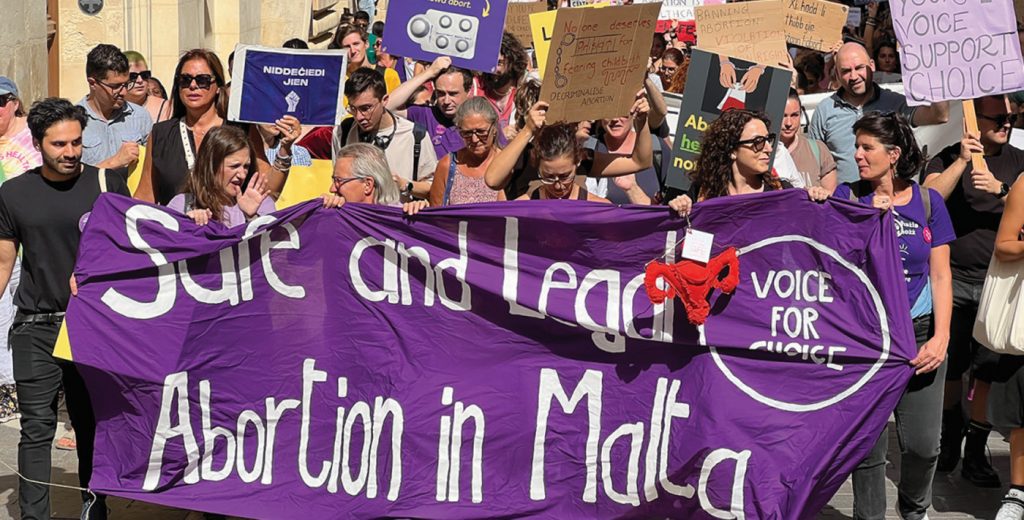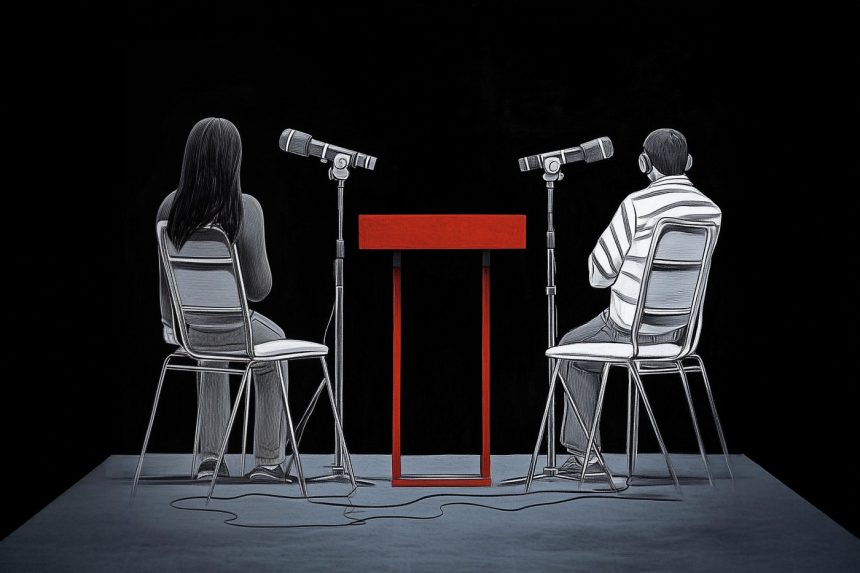The recent debacle involving Graffitti and KSU raised a lot of questions about the role that the University space should play in debating contentious issues. However, more importantly, it highlighted Malta’s inability at a societal level to discuss important sensitive topics.
Malta’s Debate on Abortion
Abortion remains one of Malta’s most polarising topics. Whilst some movements were made earlier this year with new legal amendments, abortion by and large remains illegal in Malta. The public discourse around the issue has historically been limited and fraught with cultural and religious sensitivities. This incident at the University of Malta, though on the surface a conflict between an activist group and a university body, can be seen as part of a larger reluctance to openly engage with abortion rights in the country.
The fact that KSU took the position of banning both pro-life and pro-choice messaging from Freshers Week suggests that even neutral institutions, not reliant on public opinion, are afraid of even touching on this debate. The argument that Freshers Week is not an appropriate platform for such discussions is emblematic of a broader hesitation to engage with abortion in any public forum. This creates a big question; Where can Malta have any room for mature discussion on such subjects?
This hesitancy is not unique to Malta. In other conservative EU countries, such as Poland and Ireland (prior to its referendum), abortion has been a deeply divisive issue, with governments and institutions often reluctant to allow space for open dialogue. However, in both cases, public pressure eventually forced these countries to confront the issue head-on. Malta, while still at an earlier stage in its debate, may soon find itself facing similar challenges.

There are signs that Malta’s cultural landscape may slowly be shifting. Increasing activism around reproductive rights, spurred by groups like Moviment Graffitti and Doctors for Choice, suggests that the issue is beginning to gain more visibility. The country’s strong ties to the Catholic Church is most likely the reason why a strong portion of the population opposes abortion and possibly why discussing the subject is taboo. However, the main reason that we lack even a discussion on the matter, let alone its decriminalisation, is that discussions in Malta are mostly spurred by the political elite. However, with abortion, the political elite are, more often than not, reluctant to address abortion publicly. Therefore, the reliance on the traditional movers for discussions has historically hindered open discussion. But why do politicians fear touching on the subject?
The political elite struggle to take an honest stand
Politicians in Malta who support abortion rights face a challenging political landscape. Advocating for abortion is unlikely to help them gain new voter segments, as the issue does not appear to sway pro-choice voters strongly enough to change their political loyalties. In contrast, those who oppose abortion are more easily motivated and willing to switch their support to candidates who align with their anti-abortion stance. This creates a situation where pushing for abortion rights poses a greater risk of losing anti-abortion voters than it offers in attracting new support from those who favour legalisation. As a result, political elites are hesitant to pursue the issue, fearing it will hurt them more than help.
The civil society is therefore going to be responsible for pushing this discussion. That is, if there is enough support for it. However, even here, people on both sides of the issue still avoid discussing the issue publicly due to social stigma or potential political backlash from both sides of the debate. Whether the Freshers Week incident will spark more open debate on abortion in Malta remains to be seen, but it is clear that abortion is still a taboo even for the university campus. In all of this, whether you’re an institution, a political actor, or part of a social movement, the goal should be to foster dialogue that helps societies navigate these issues with sensitivity and critical thinking, rather than avoiding the difficult topics altogether.

Leave a Reply